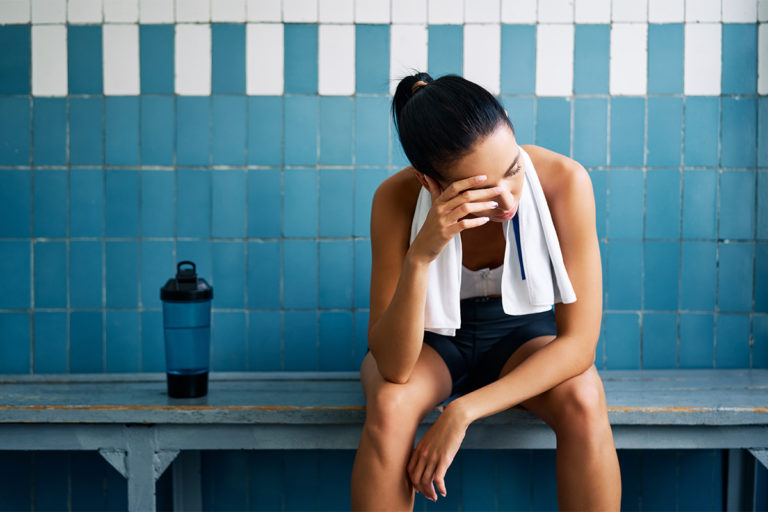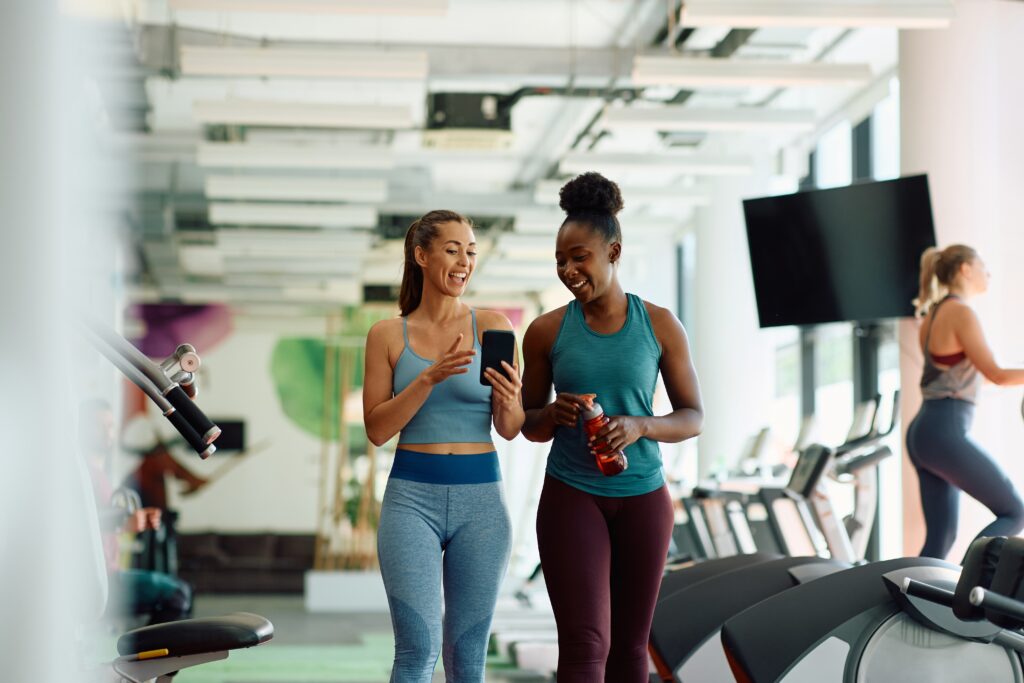Table of Contents
Simone Biles, Olympic gymnast, and six-time Olympic medalist pulled out of the team final and the women’s individual all-around at the Tokyo Games to focus on her mental health. “Put mental health first,” said Biles. “If you don’t, then you’re not going to enjoy your sport and you’re not going to succeed as much as you want.” For higher education institutions, the health and well-being of student-athletes must be a priority. Higher education leaders need to create strategies to help students and heed professional advice to support student-athlete mental health and well-being.
How do physical health and mental health differ for college student-athletes?
The number of National College Athletic Association (NCAA) student-athletes competing in championship sports increased by 17% since 2010 to reach an all-time high of 503,623 last year. While approximately 30% of women and 25% of men who are student-athletes report having anxiety, only 10% of all college athletes with known mental health conditions seek care from a mental health professional. Data also confirms that student-athletes are at a greater risk of substance abuse, social anxiety, and eating disorders (i.e., anorexia, bulimia) than other students.
The pressures and demands on 18- to 21-year-old athletes are tremendous. Anyone who works with student-athletes knows the challenges they face. While student-athletes may play games, being a student-athlete isn’t a game.
Student-athletes are college students, with all the daily life challenges that young adults face. And as college athletes, and possibly even campus celebrities, these students carry the hopes and expectations of their campus and community. Their wins and losses are seen by all, questioned by many, and criticized publicly.
College and high school student-athletes represent a healthy cohort on their campus. Typically, student-athletes are the example of discipline, commitment, and attention to the exercise and nutrition required to meet the physical health demands of their sports. As such, athletics departments have developed sports medicine services that engage many different resources to address injuries and illnesses that student-athletes face. This ensures student-athletes are in the best condition to compete. And, while sports-related injuries can have a substantial impact on the long-term health of student-athletes, there’s more to being a student-athlete than physical preparation, health, and performance.
As more media coverage, commentary, and public scrutiny are devoted to what student-athletes do off the field — on top of the pressures to perform and win games — these young adults are inundated with factors that affect their mental health and wellness. Additionally, the culture of college sports may inhibit some student-athletes from seeking help to address issues such as anxiety, depressive symptoms, burnout, the stress of team or individual expectations, and the everyday stress of dealing with relationships, academic demands, and life away from home.
The new pressure of managing name, image, and likeness for student-athletes
Name, image, and likeness (NIL) describe the process by which college athletes are allowed to receive financial compensation through marketing and promotional endeavors — from autograph signings to product endorsements, to social media posts. Because new legislation was scheduled to begin on July 1, 2021 in Florida, Mississippi, Texas, Alabama, Georgia, and New Mexico, the NCAA has approved NIL for athletes at all colleges and universities, beginning on that date. In the states without specific NIL laws, an interim policy will permit athletes everywhere to pursue financial opportunities.
For the NCAA, colleges, and universities, the most concerning aspect of NIL is the potential for exploitation of recruiting rules. For example, car dealerships in different cities could bid for a standout prospect to lure them to the local school. The interim policy maintains the commitment “to avoid pay-for-play and improper inducements tied to choosing to attend a particular school.” But how NIL compensation will be kept separate from the recruiting world is unclear.
In the end, college student-athletes will have increased pressures to both manage their name, image, and likeness, and deal with potential pressure from big bidders to recruit them to specific schools.
Higher education’s challenges in supporting student-athletes
Given the prevalence of these realities for student-athletes, it’s no surprise that these pressures have the potential to increase mental health problems. A well-trained psychologist with expertise in sport psychology is an ideal resource to provide care and services. However, the role of the sports psychologist in college sports has evolved slower than the needs of student-athletes.
Here are a few challenges higher education faces with the integration of sport psychologists within college athletics:
The perception of mental health as a weakness for student-athletes
There is a tendency among student-athletes, coaches, and staff to minimize mental health disorders or psychological distress because of the expectations of strength, stability, and mental toughness inherent in the culture of sports. As a result, student-athletes often avoid disclosing mental health concerns, especially if the perceived negative consequence results in being rejected by teammates or coaches. Stigma further exacerbates the problem of student-athlete mental health as it inhibits open dialogue, education, and the development of resources. Research shows that of the 33% of all college students who experience significant symptoms of depression, anxiety, or other mental health conditions, only 10% of student-athletes in that group seek mental health support.
Unbalanced staffing for student-athlete care and support
As sports medicine and athletic training have evolved, it’s become more common for a Division I athletics department to employ four or more full-time certified athletic trainers. Some schools even have in-house sports medicine physicians providing medical care for student-athletes. Additionally, more and more athletics departments employ registered dietitians/sports nutritionists to provide nutritional care for their athletes. However, few programs employ full-time or part-time licensed psychologists. Instead, athletic departments depend on the campus mental health resources — like student counseling centers — for mental health issues. The inherent problem with this approach is that student counseling centers do not typically employ a psychologist who has the training/education to address the unique psychological needs of student-athletes.
Lack of understanding of the distinct culture of athletic environments
It’s important for mental health professionals to understand the external stressors, motivations, and dynamics within the environment of athletics. This often requires that a licensed provider have experience as a student-athlete or coach, a prior role within an athletics department, or have supervised experience during their training (e.g. pre-doctoral intern with a rotation in sport psychology/athletics). This immersive experience offers experiential learning opportunities for the psychologist, which builds competency to provide care for the athlete.
Lack of training models for mental health providers in sport psychology
As the role of psychologists within collegiate athletics has increased, many clinical/counseling psychology programs don’t offer graduate coursework in the domain of sport and performance psychology. However, a few programs, including the University of North Texas and Indiana University Bloomington, train students to be doctoral-level psychologists and provide graduate training/experience in the domain of sport psychology.
Overemphasis on performance and mental toughness
Because collegiate athletics typically focus on performance excellence and mental toughness, college athletics programs are prime targets for motivational gurus and mental coaches. And, these individuals may ignore or minimize real issues of psychological health. The athletics administrator must provide effective mental health support services for student-athletes, as well as providing a resource to teach coaches and student-athletes psychological skills to enhance sports performance. Licensed psychologists can often provide both services for a collegiate athletics department.
Optimize student care with telehealth
Best practices for ensuring the health and well-being of college student-athletes
The NCAA Sport Science Institute and leading mental health organizations across the country developed a seminal publication in support of college athlete mental health and wellness — the Inter-Association Consensus Document: Best Practices for Understanding and Supporting Student-Athlete Mental Wellness. In addition to these recommendations, here are four best practices you should employ for the benefit of student-athletes and the health of your campus community.
Ensure that your school has clinically licensed or practicioners providing mental health care
Schools are encouraged to ensure that the mental health care of a college athlete is provided by a licensed individual who is qualified to provide mental health services.
Checklist
Sample mental health procedures
Develop procedures for identification and referral of student-athletes to qualified practitioners for care
Athletics departments are encouraged to work with sports medicine and campus mental health services to develop written emergency and non-emergency action plans for situations in which college athletes face mental health challenges.
Checklist
Emergency action plan recommendations
Implement mental health screening tools for student-athletes
Schools are encouraged to develop and apply mental health screening tools, as well as a written mental health referral plan, before student-athletes’ initial participation in college athletics.
Checklist
Create health-promoting environments that support mental well-being and resilience
Athletics departments are encouraged to educate student-athletes, coaches, and faculty athletics representatives to help create a culture that promotes care-seeking, mental well-being, and resilience.
Checklist
Managing student-athlete mental health issues
Improve your student athletes’ mental health and well-being with telehealth support
Care delivered through telehealth is fast, easy, and efficient. It eliminates wait times, reduces the stigma of seeking mental and medical care, and is available the moment a student needs care. When students don’t have to wait days or weeks for a counseling center appointment, there is bound to be a positive effect on campus health and wellness. For student-athletes who are frequently away from campus and have difficult day-to-day schedules, telehealth offers a 24/7 solution for accessing care that meets them where they are, with the physical and mental health care they need.
Contact TimelyCare to learn how mental and physical telehealth for colleges can make a difference in the lives of your student-athletes – no matter where they are.
We have to protect our mind and our body, rather than just go out there and do what the world wants us to do.
Simon Biles, Olympic gymnast





